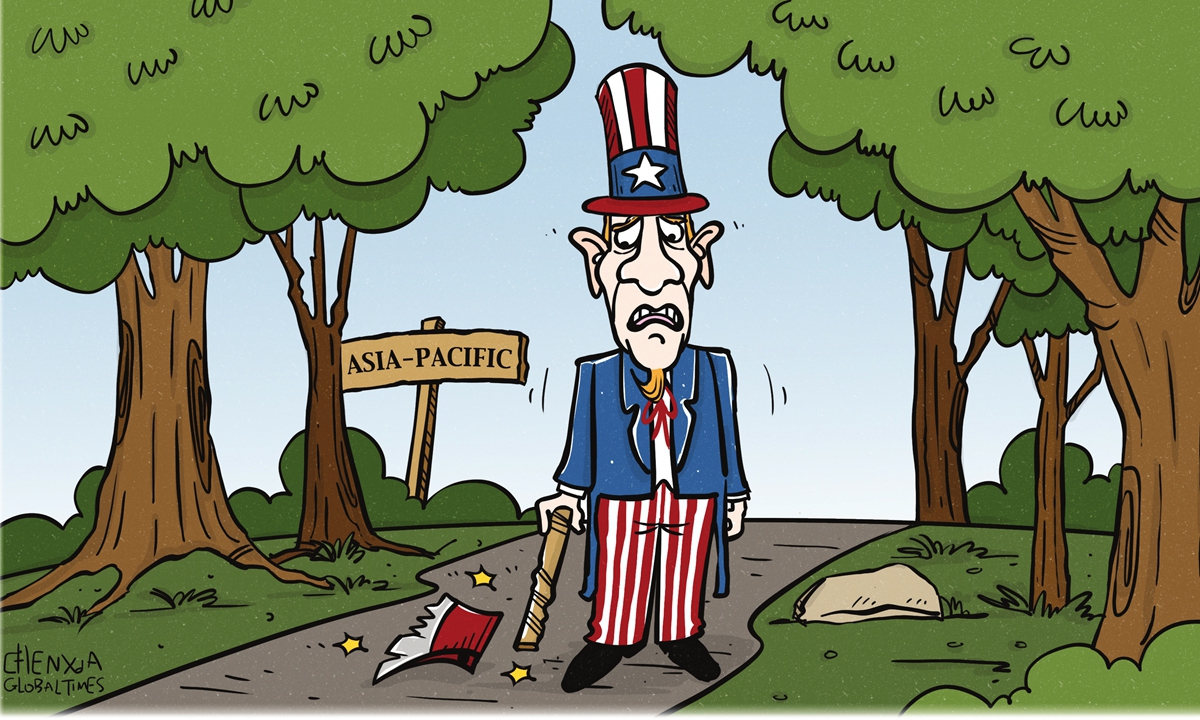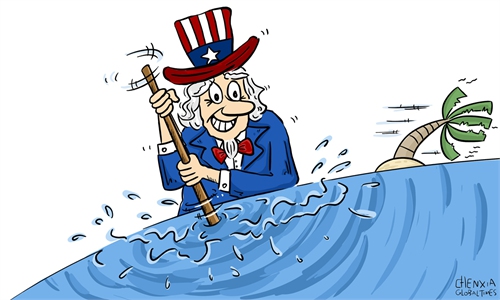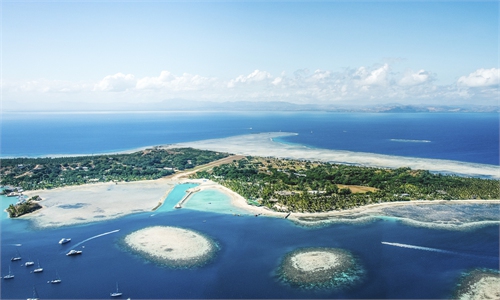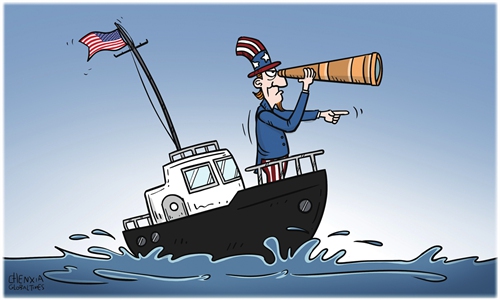
Illustration: Chen Xia/GT
In an interview with the Financial Times, Commander of US forces in the Indo-Pacific region Admiral John "Lung" Aquilino accused China of stepping up its aggressive conduct through a "boiling frog" strategy in the region.
Calling China's behavior "destabilizing," the US commander just framed another wording to hype the "China threat" in the Asia-Pacific. But is China really a threat? Facts speak louder than words. Recently, the State of Southeast Asia 2024 Survey conducted by the ASEAN Studies Centre at ISEAS - Yusof Ishak Institute - has revealed that China has edged past the US to become the prevailing choice if the region were forced to align itself in the ongoing US-China rivalry.
Aquilino pointed to Chinese coast guards' "aggressive actions" in the South China Sea against the Philippines, but kept silent about the Filipino side's violation of Chinese territorial sovereignty, contravention of the Declaration on the Conduct of Parties in the South China Sea, and disruption of peace and stability in the South China Sea, while all of these had US' backing. He talked about Chinese warplanes flying over the so-called median line in the Taiwan Straits, but failed to mention US arms sales to China's Taiwan island and the US' exploitation of Taiwan as a pawn to undermine China's efforts of reunification and pursuit of peaceful development. He claimed that China gradually "raised the temperature," but it is worth mentioning that with its overseas bases all over the world, the US remains the world's largest defense spender, outlaying $916 billion last year, while China's defense spending was four times smaller than America's.
This is the second time in recent days that Aquilino uttered hawkish words against China. In Tokyo last week, he said China's rhetoric and actions in the Asian region are increasingly aggressive and hyped that China aims to have the capability to "invade Taiwan by 2027."
Sun Xihui, an associate research fellow with the National Institute of International Strategy at the Chinese Academy of Social Sciences, told the Global Times that the military official aims to rally support from the region to confront China.
Sun noted that as the US finds it difficult to extricate itself from the Russia-Ukraine conflict and the crisis in Gaza, it cannot mobilize more resources into the Asia-Pacific region, therefore it has to find incentives for its regional allies and partners and rely on their help to counterbalance China.
For instance, as most recent as this month, the US, Japan, Australia and the Philippines held their first joint naval exercises, including anti-submarine warfare training, in a show of force in the South China Sea. In a move seen as a clear warning to China, the US is planning to deploy medium-range missile launchers across the Asia-Pacific region. The US is also inviting Japan to be a potential partner on part of AUKUS, a trilateral pact that is aimed at China. All these are clear indications that the US is ratcheting up efforts to strengthen deployment in the Asia-Pacific, and the convenient excuse is China, and Aquilino is only facilitating this process.
The US tries to create fear about China in the region, but in the eyes of regional countries, the one that is adopting a "boiling frog" strategy is the US. Former Philippine presidential spokesperson Rigoberto D. Tiglao wrote in the Manila Times on April 10 that the Philippines is the US' puppet state and a boiling frog.
Actually, what the US has done is splashing "boiling water" at the region, whose peace and stability never comes across the mind of the US. Countries in the region should be aware that serving as a bridgehead for Washington's strategy to contain China is tantamount to loading oneself with explosives and placing the lit fuse in the hands of politicians in Washington like Aquilino who are indulged in adventurism and provocation.



